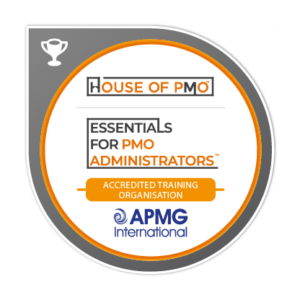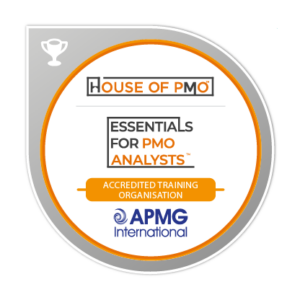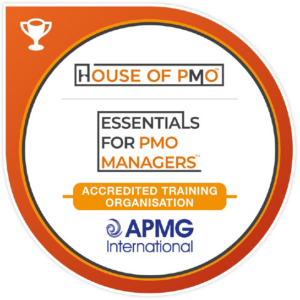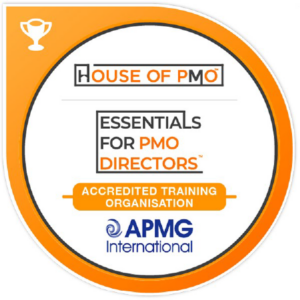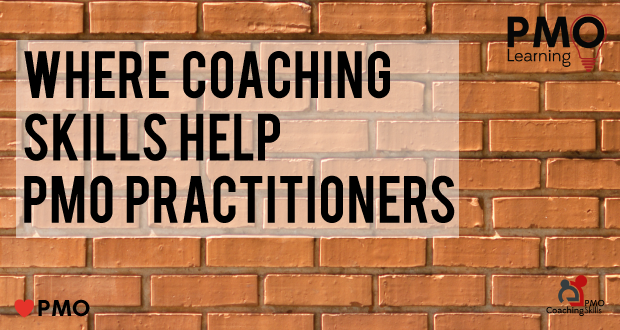
Think for a moment of all the challenge areas where you regularly get involved as a PMO practitioner.
Creating reports for different sets of stakeholders; assigning resources; co-ordinating team communications; tracking dependencies; defining standards; devising a learning program; taking the minutes in a complex meeting; prioritising a portfolio of projects…
The list is endless and that’s why the job of PMO is so attractive to many people – no two days are ever quite the same. The number of different functions and services offered; the number of different programmes and projects worked on; not to mention to the sheer amount of different people and personalities.
When it comes to developing your career as a PMO practitioner often we fall into the same trap that many Project Managers also fall into – we concentrate on learning and developing the technical aspects of the job.
We learn how to create a project plan; we learn how to create templates; checklists, complex Excel reporting dashboards; we learn about different lifecycles and techniques to navigate the way through. All of these we learn from training courses; picking up a book; listening to a webinar or learn from others on the job.
Appendix F
When we look at the different functions and services the PMO offers – and picking up the PMO favourite, Appendix F in the P3O® manual, we see the different services we could and do provide. If anyone was in doubt that the role of the PMO is limited and dull, this quickly puts paid to it.
Within the same Appendix F, there is also a list of useful tools, techniques and references against each of the PMO functional areas. For example; stakeholder engagement and communications list, the stakeholder maps, profiles, engagement strategy, comms plan and RACI matrix. It also includes collaboration tools; publishing software and web authoring tools.

The useful tools and technique in the P3O® manual have crucial missing techniques – it’s those techniques that rely on us as individuals to interact, converse, move people to action or lending a helping hand.
When things get challenging, or there are problems that need solving, where the normal order of things like conversations and discussions don’t cut it, we need to find other ways to help us through.
When conflict situations arise, we need to be able to calm things down, get people working together, restoring the peace so solutions can be achieved.
 When we’re truly working on unique projects, where we’re venturing where we’ve never been before, it’s helpful to have some order to chaos, to have some framework to work in and anchor us.
When we’re truly working on unique projects, where we’re venturing where we’ve never been before, it’s helpful to have some order to chaos, to have some framework to work in and anchor us.
In projects we need to see other people’s views of the world; what’s motivating them; to know how to support and help them.
When we see people perhaps struggling to carry out their work effectively; or learn new approaches; or to engage effectively with the PMO – how do we help?
All of these types of situations happen all the time in projects and as PMO practitioners we’re regularly there in the middle of them all.
Yet how do we deal with them? Where do we learn the skills to help people through difficult situations? How do we know which skills to use in the right situation?
That’s where coaching skills for PMO practitioners come in. Coaching skills in this sense is not about counselling or even mentoring. Coaching skills are the skills that good coaches use, understanding what techniques they use and the frameworks they adopt to help others.
The PMO practitioner can tap into good coaching techniques and approaches to combine with their technical ability and really elevate the service they provide.
Here’s an example of a great little coaching technique that I’ve started to use regularly. It’s called the structure of a problem.
Structure of a Problem
Here’s how it works. We have a problem that we need to solve. We need to articulate what the problem is first of all.
Then we need to understand where we are now – what’s happening, who’s involved and so on.
Then we need to give thought to where we need to be, what will it look, feel like when we’ve solved the problem.
Then we look at how to get from now to there. What’s stopping us?
We need to get these ‘things’ that are stopping us into brick-sized chunks. So we’re breaking down what we think is a big gigantic problem into smaller, more transactional steps.
It makes it easier for us to overcome problems when we start to see them as lots of smaller steps to overcome.
Not only that, when we see the smaller chunks – or bricks in the wall – we can start to understand who might be the person to own that, to take accountability, to take action and do something.
Not all parts of the problem are something that you can fix, and especially not in a project environment.
Once we start to use a technique like this – the nature project people we are starts to see a way through it, a practical way to try and solve the problem with the right people being accountable for the things they can do and change.
It’s a really practical approach – that any PMO practitioner can quickly learn, pick up and use back in the workplace.
And what’s more, there are lots of other really simple and effective techniques you can use that are culled from the world of coaching.
If you’re ready to focus on elevating what you do by utilising these kind of skills [join us for the Coaching Skills for PMO one day course]
The P3O® courses on this page are offered by PMO Learning. P3O® is a [registered] trade mark of AXELOS Limited. P3O® is a registered trade mark of AXELOS Limited, used under permission of AXELOS Limited. The Swirl logo™ is a trade mark of AXELOS Limited, used under permission of AXELOS Limited. All rights reserved.








